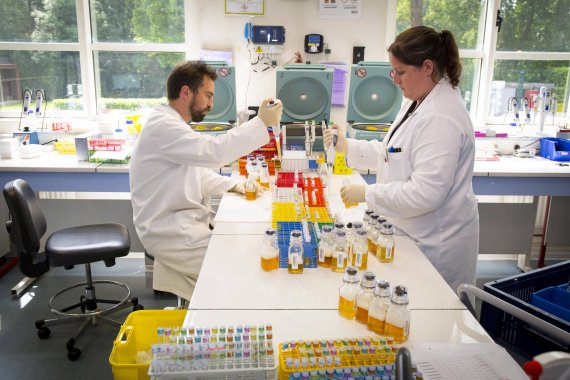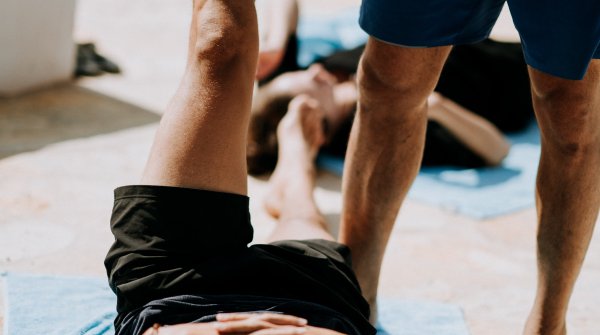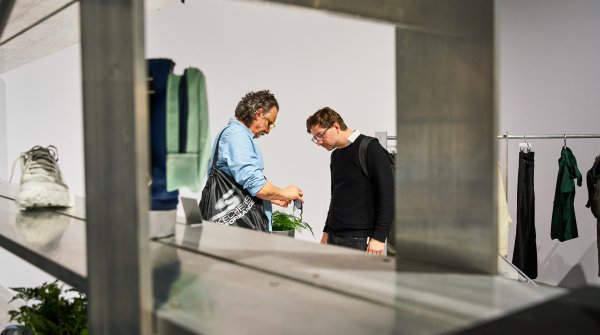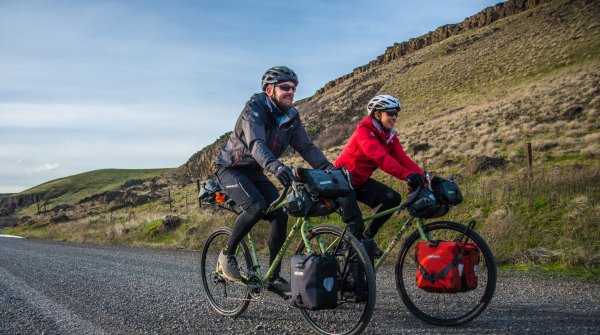
Starting out as a doping control officer is pretty easy: Sample collection personnel at sports events and training locations usually do it as a second job. And they often work for private service providers and institutes like Global Quality Sports in Stuttgart and Berlin or for PWC Medizinische Testverfahren im Sport GmbH (Medical Testing for Sports) in Munich.
That means these students, freelancers, ex-soldiers, or early retirees do not necessarily have to apply to the World Anti-Doping Agency WADA, which is much better known to the global public.
Whether at the Olympic Games or the second national handball league: whoever takes urine samples as a doping control officer has to be absolutely trustworthy. Candidates must not have any entries in the Federal Central Register, i.e. they must not have a criminal record.
Training is done with a private service provider and lasts several months, after which the candidates carry out testing at training locations and competitions under the supervision of experienced control officers. Afterwards, they complete basic theoretical training and prove their trustworthiness as a doping control assistant (DCA).
After collecting experience as an assistant, candidates can take the doping control officer (DCO) examination. Medical training is also required to carry out blood testing.
People who work as doping control officers in a second job – like most DCOs – generally make a bit on the side. However, their standard of life must be secured by other income/pensions, i.e. they must not have significant debt. Because this is something service providers and doping agencies also check: has an applicant ever filed for private bankruptcy, do thy have negative entries with business credit agencies?
Experience shows that anyone in financial difficulties is more susceptible to bribery. And that is the last thing agencies fighting doping want to have: corrupt employees.
The weekly newspaper “Die Zeit” printed one of the few articles on the practical work of doping control officers, in which it said: “And they have to watch the athletes carefully when they pee... because there are numerous tricks for manipulating urine samples. A deceptively real-looking penis connected to a urine bag under the arm is only one of the most sophisticated methods.”
These and other known practices for deception make it essential for control officers in top-class sports (of course men for men and women for women) to be as close as possible to athletes when submitting a urine sample in order to recognize any attempt at manipulation. You may like it or not, but you definitely need to be able to do it and are not allowed to look away...
During stadium tours at the Dortmund Signal-Iduna-Park, guides like to tell the story of Italy’s goal keeping legend Gianluigi “Gigi” Buffon. He hadn’t had enough to drink before the game, so he had to dive around the penalty area in the summer heat, sweating out the very last bit of his bodily fluid. Unfortunately, he was selected for a doping sample and wasn’t able to pee.
The Dortmund team helped him out with a case of beer and Gigi happily drank half of it (small bottles, so about three liters). Then he successfully disappeared off to the bathroom with the control officer and later teetered over to the team bus waiting for him. The disadvantage for the doping control officer: he had to watch Buffon drink beer for one and a half hours.
“Patience” and “flexibility” are required in most job descriptions for control officers – Buffon’s story is a prime example for why.
In addition to the traditional control officer jobs, the national anti-doping agencies and the WADA, in particular, have other jobs people can apply for. Mostly, they are constantly looking for IT professionals to carry out assessments and administer data. One of the most exotic jobs, on the other hand, is conducting doping tests, although not on people. But rather on horses.
The National Anti-Doping Agency NADA based in Bonn also hires specialists to take samples from horses at riding tournaments and training locations. Training as an animal caretaker is often a prerequisite since “horse whisperers” are usually best at dealing with stubborn horses.
At the United States Anti-Doping Agency a doping control officer can earn somewhere between 30.000$ and 70.000$ depending on your previous experience and entry level. Private companies might offer higher salaries.

 Know-HowSports therapist: prevention helps
Know-HowSports therapist: prevention helps
- Awards
- Mountain sports
- Bike
- Fitness
- Health
- ISPO Munich
- Running
- Brands
- Sustainability
- Olympia
- OutDoor
- Promotion
- Sports Business
- Textrends
- Triathlon
- Water sports
- Winter sports
- eSports
- SportsTech
- OutDoor by ISPO
- Heroes
- Transformation
- Sport Fashion
- Urban Culture
- Challenges of a CEO
- Trade fairs
- Sports
- Find the Balance
- Product reviews
- Newsletter Exclusive Area
- Magazine





